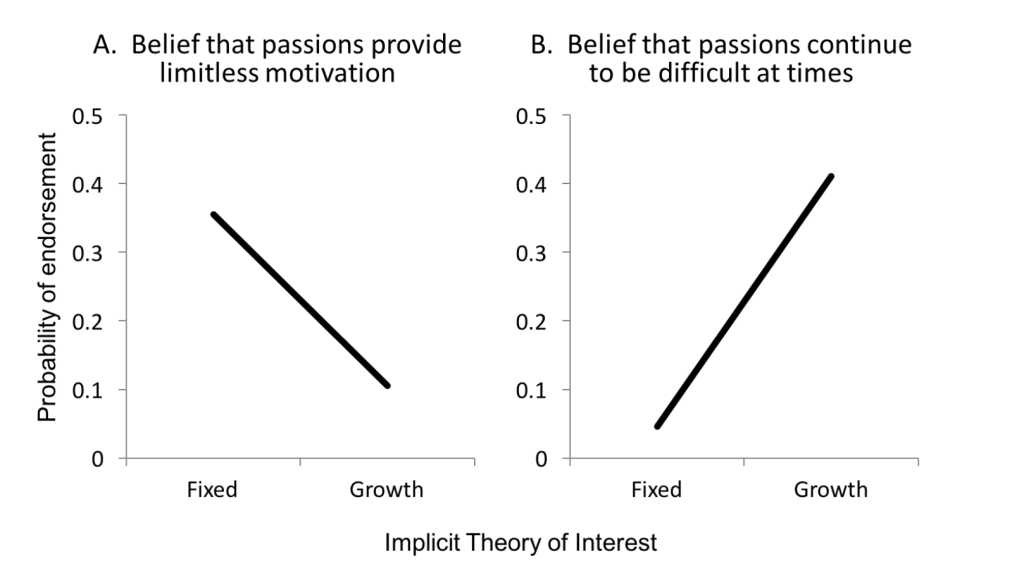Research Parcel Series – 3
We often hear this mantra “Find your passion”, right?
But where do interests come from and how do they unfold? Are interests there all along, waiting to be revealed? Or must a spark of interest be cultivated through investment and persistence? I came accross this interesting work by O’Keefe and colleagues. According to the paper, people are often told to find their passion as though passions and interests are inner properties, simply to be discovered or recovered.

Predicted probabilities that students endorsed the ideas (A) that passions provide limitless motivation and (B) that pursuing passions will be difficult at times (Study 4). Fixed and growth theories of interest are plotted at -1 SD and +1 SD, respectively.
This table is one of several experimental outputs showing the propensity of how passion should always be evaluated and adapted with environmental dynamics. In other words, rather than finding your passion, you need to nurture it. True that if faced by challenged, we may opt to either take it or leave it for another journey. This research tells us that rather than abandoning current work for finding new work, why not try to face the hurdles and reduce the gap by exploring capabilities.
So be agile! “Mantras like “find your passion” carry hidden implications, the researchers say. They imply that once an interest resonates, pursuing it will be easy. But, the research found that when people encounter inevitable challenges, that mindset makes it more likely people will surrender their newfound interest.”
Abstract
People are often told to find their passion, as though passions and interests are preformed and must simply be discovered. This idea, however, has hidden motivational implications. Five studies examined implicit theories of interest—the idea that personal interests are relatively fixed (fixed theory) or developed (growth theory). Whether assessed or experimentally induced, a fixed theory was more likely to dampen interest in areas outside people’s existing interests (Studies 1–3). Individuals endorsing a fixed theory were also more likely to anticipate boundless motivation when passions were found, not anticipating possible difficulties (Study 4). Moreover, when it became difficult to engage in a new interest, interest flagged significantly more for people induced to hold a fixed rather than a growth theory of interest (Study 5). Urging people to find their passion may lead them to put all their eggs in one basket but then to drop that basket when it becomes difficult to carry.
Source: Paul A. O’Keefe, Carol S. Dweck, Gregory M. Walton. 2018. Implicit Theories of Interest: Finding Your Passion or Developing It?. Psychological science, 29(10), 1653-1664.
Chicago. https://doi.org/10.1177/0956797618780643